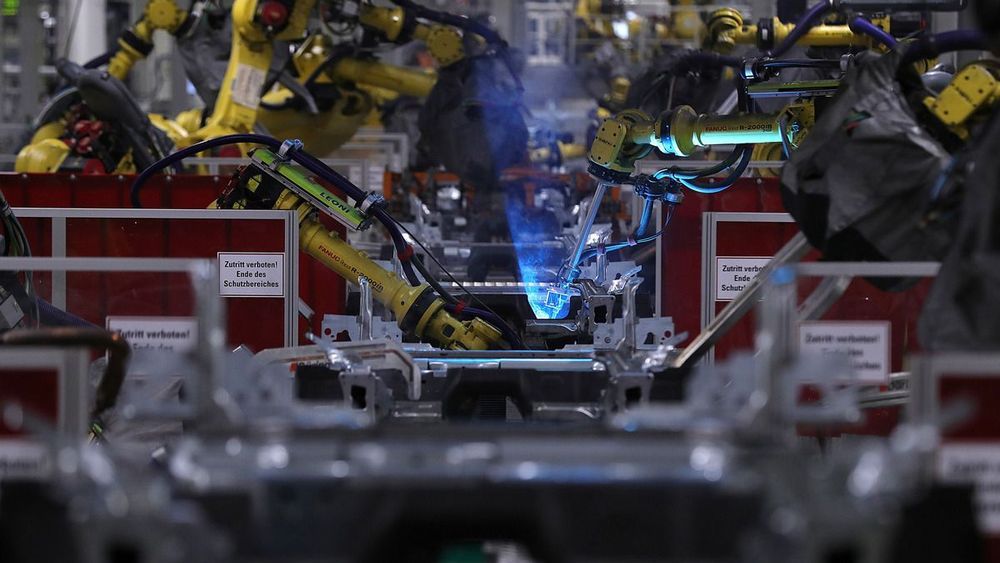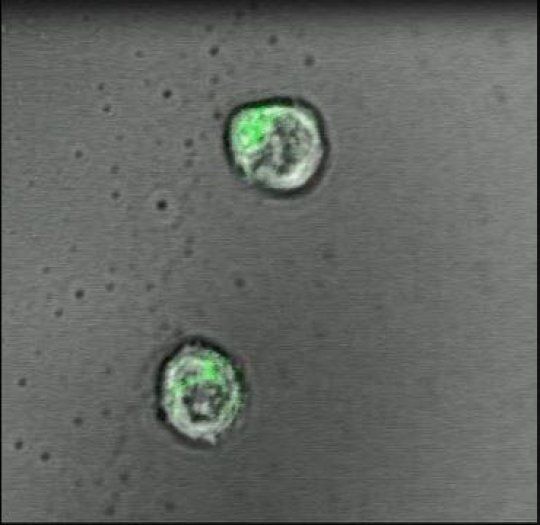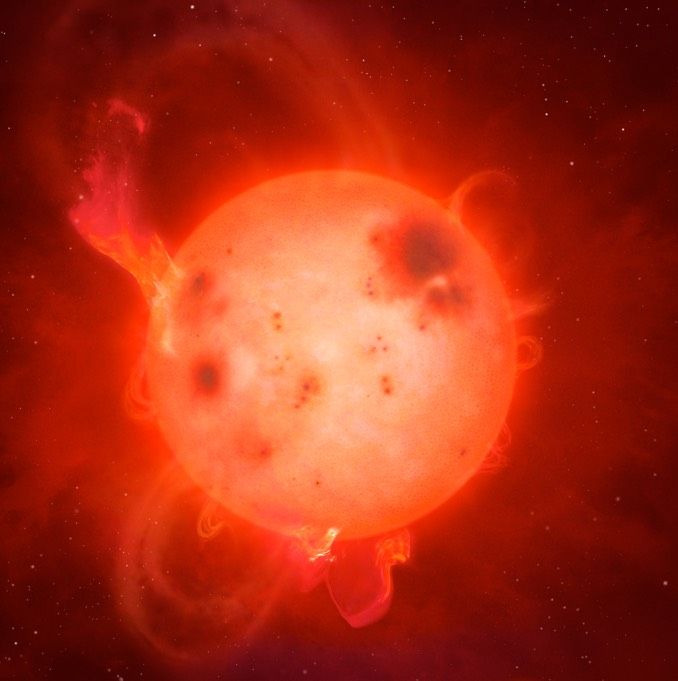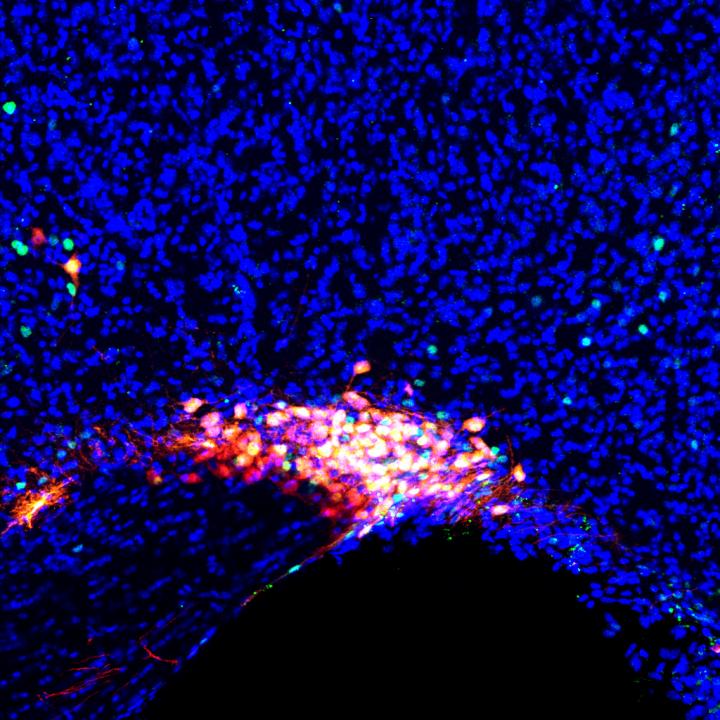Page 8863
Apr 21, 2019
Scientists advance Creation of ‘Artificial Lymph node’ to fight Cancer, other diseases
Posted by Mike Ruban in categories: biotech/medical, education, engineering, food, genetics
In a proof-of-principle study in mice, scientists at Johns Hopkins Medicine report the creation of a specialized gel that acts like a lymph node to successfully activate and multiply cancer-fighting immune system T-cells. The work puts scientists a step closer, they say, to injecting such artificial lymph nodes into people and sparking T-cells to fight disease.
In the past few years, a wave of discoveries has advanced new techniques to use T-cells – a type of white blood cell – in cancer treatment. To be successful, the cells must be primed, or taught, to spot and react to molecular flags that dot the surfaces of cancer cells. The job of educating T-cells this way typically happens in lymph nodes, small, bean-shaped glands found all over the body that house T-cells. But in patients with cancer and immune system disorders, that learning process is faulty, or doesn’t happen.
To address such defects, current T-cell booster therapy requires physicians to remove T-cells from the blood of a patient with cancer and inject the cells back into the patient after either genetically engineering or activating the cells in a laboratory so they recognize cancer-linked molecular flags.
Apr 21, 2019
Jupiter-size star generates titanic white-light ‘superflare’
Posted by Genevieve Klien in category: space
A small, borderline star about the size of Jupiter some 250 light years from Earth has been caught in the act of emitting an enormous superflare, releasing the equivalent of 80 billion tons of TNT while triggering a 10,000-fold increase in brightness.
The flare was 10 times more powerful than any known outburst from the Sun, including the Carrington event in 1859 that disrupted telegraph services around the world and caused strong, widespread auroral displays.
“The activity of low mass stars decreases as you go to lower and lower masses, and we expect the chromosphere (where flares originate) to get cooler or weaker,” said James Jackman, a doctoral student at the University of Warwick and lead author of a paper about the eruption.
Continue reading “Jupiter-size star generates titanic white-light ‘superflare’” »
Apr 21, 2019
We’ll be eating the first Crispr’d foods within 5 years, according to a geneticist who helped invent the blockbuster gene-editing tool
Posted by Genevieve Klien in categories: food, genetics
A UC Berkeley geneticist who helped invent the gene-editing tool Crispr told Business Insider its most profound impacts will be on agriculture.
Apr 21, 2019
Partial Function Restored to the Brains of Dead Pigs
Posted by Paul Battista in category: neuroscience
Apr 21, 2019
The board games turning science into playtime
Posted by Genevieve Klien in categories: entertainment, particle physics, science, space
Science-themed board games are an increasingly popular way to learn about everything from atom building to colonising space.
Apr 21, 2019
New fossils suggest human ancestors evolved in Europe, not Africa
Posted by Mike Ruban in category: futurism
Apr 21, 2019
To learn to juggle, this AI-powered hand had to accumulate 100 years’ worth of experience
Posted by Mike Ruban in category: robotics/AI
Apr 21, 2019
Scientists Discovered Where Anesthesia Works On the Brain
Posted by Mike Ruban in categories: biotech/medical, neuroscience
A medical miracle happened about 170 years ago when scientists discovered general anesthesia that enables millions of patients to undergo invasive, life-saving surgeries without pain. However, in spite of decades of research, scientists cannot understand why general anesthesia works.
In a new study published online in Neuron, scientists believe they have discovered the part of the answer. A team of researchers from a Duke University found that several different general anesthesia drugs knock out the patient by hijacking the neural circuitry that the person falls asleep.
They traced this neural circuitry to a tiny cluster of cells at the base of the brain responsible for churning out hormones to regulate bodily functions, moods, and sleep. The discovery is one of the first to indicate a role for the hormones in maintaining the state of general anesthesia and provides valuable insights for generating newer drugs that could put people to sleep with fewer side effects.
Continue reading “Scientists Discovered Where Anesthesia Works On the Brain” »
Apr 20, 2019
Antimatter Catalyzed Fusion Propulsion Update
Posted by Klaus Baldauf in categories: business, education, space travel
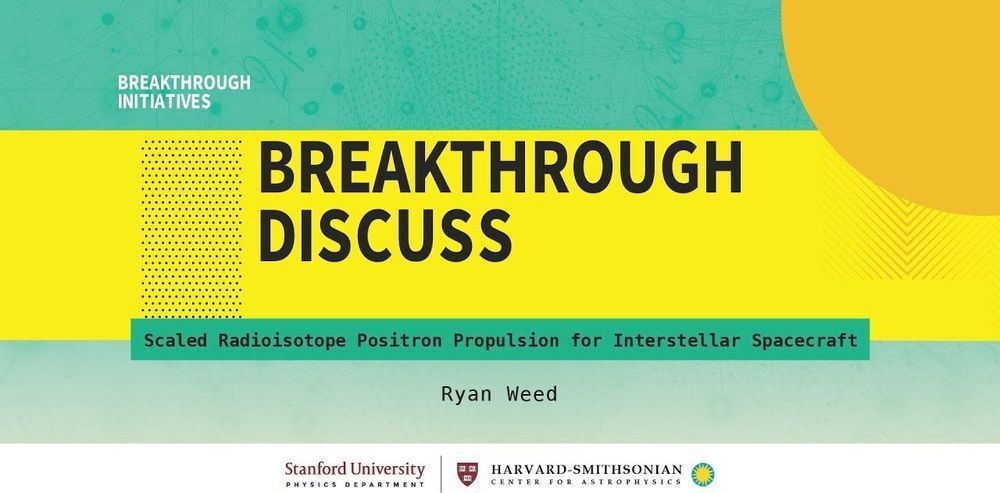
Ryan Weed updates the work at Positron Dynamics at Space Access 2019. Positron Dynamics has completed the NASA NIAC study. They are applying for some Small Business Innovation Research (SBIR) grants.
Positron Dynamics will use Krypton isotopes to generate positrons. They would breed more Krypton isotopes. They sidestep the issue of antimatter storage. It would take 10 school buses of volume at the Brillouin limit to trap 1 microgram.
Continue reading “Antimatter Catalyzed Fusion Propulsion Update” »
